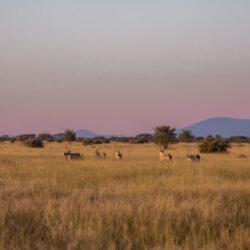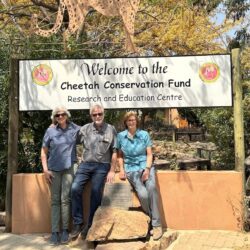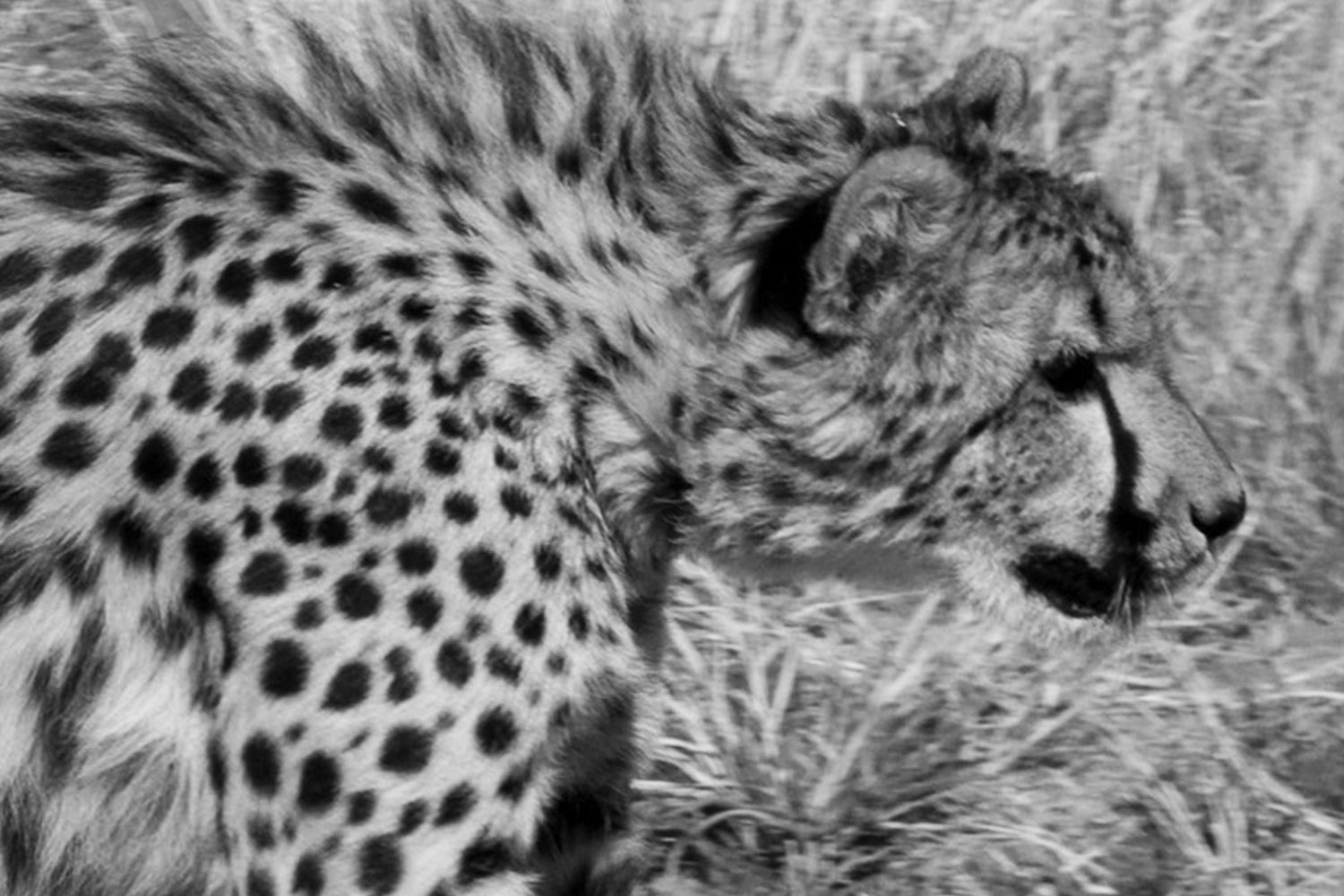CCF 2023 Highlights – What a Year!
-

- by Dr. Laurie Marker and Dr. Bruce Brewer January 5, 2024
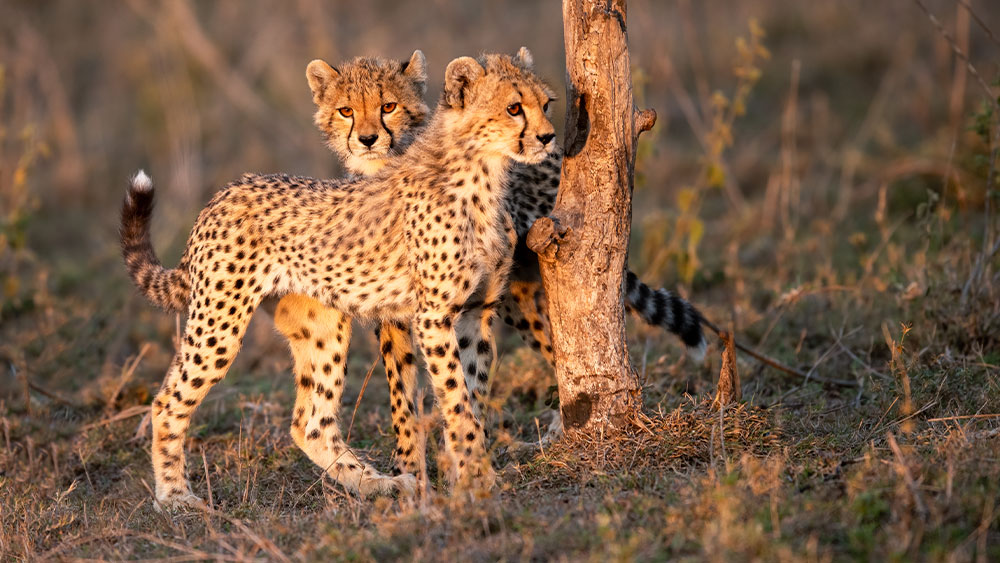
We’d like to thank you for your ongoing support during 2023. We had a very busy and productive year, and, we are looking ahead to 2024 which will be equally busy and we aim to ensure that it’s just as productive.
Somaliland Update
We started 2023 by completing the Cheetah Rescue and Conservation Centre (CRCC) in Geed-Deeblee, Somaliland. We were able to move all the cheetahs from the five Safe Houses in Hargeisa to the Centre between February and July. We built over 30 large enclosures at the CRCC to house the 94 cheetahs, one caracal and one leopard. The cheetahs are thriving in their new facilities and are able to walk and run on dirt, climb trees and enjoy the natural enclosures in which they are now living. CCF received cheetahs from three confiscations in 2023 that came in November and December, with the last 3 cubs arriving the evening of the 25th of December.
In addition to the move, the CCF team continued its work to stop the Illegal Wildlife Trade (IWT) in Somaliland with the support of several large grants from the UK/DEFRA, EU/WHH, IUCN/SOS, Taiwan government, and US/FWL. These grants have enabled CCF to hold workshops on developing conservancies as well as develop, translate, and present education materials, including CCF Future Farmers of Africa training books, and the CCF Teachers Guide and Student booklets. CCF was also involved in the coordination for the development of the Somaliland Association of Community Based Natural Resource Management Support Organizations (SACSO). This association will be similar to NACSO in Namibia, in which we have been a long-time member. In addition, the grants have helped bring together lawmakers to strengthen the wildlife and forestry laws in Somaliland against the IWT and to help the government to develop national parks, protected areas and conservancies. This law will be presented to the Somaliland parliament in early January 2024.
A number of research projects are underway or have been completed to support conservation and policy work. One of the research projects addressed the genetic makeup of the confiscated cheetahs in Somaliland, and its publication contributed to the uplisting of the northeastern subspecies of the cheetah by IUCN to “Endangered” status.
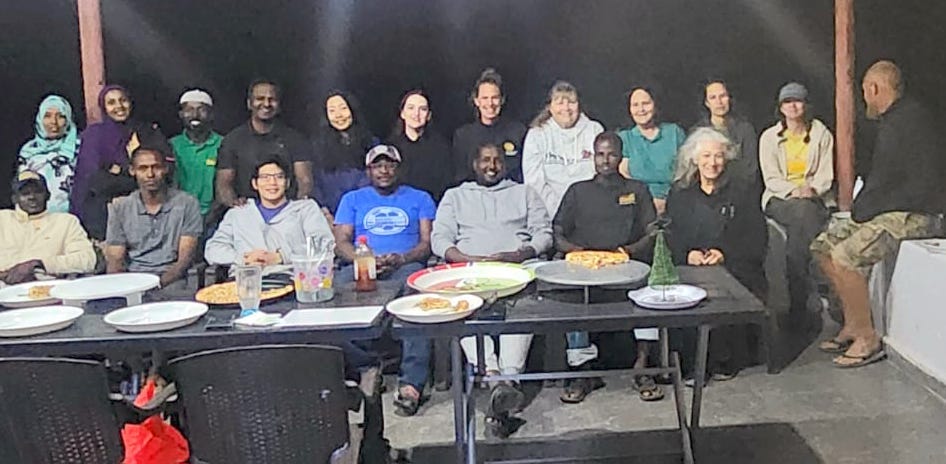
Namibia Update
In Namibia, the EU provided a grant for a ‘Steam bio’ project which is set up at CCF’s Biomass Technology Demonstration Centre (BTDC). CCF is collaborating with 15 organizations on this project. We have also furthered our research to better understand the ranges of the cheetahs. We covered vast areas with both camera traps and the use of detection dogs, using photos to identify individuals and the scat found by the detection dogs to identify individuals though DNA analysis in CCF’s genetics lab.
Unfortunately, several cheetahs have been caught by farmers in Namibia this past year. Working in close collaboration with the Ministry of Environment, Forestry and Tourism (MEFT), we were able to collect the cheetahs, and most were released back into the wild. In the last two weeks, CCF received six cheetahs that were caught by farmers. Of these, two will have to stay at CCF for a period of time, as they are too young to go out into the wild, but CCF will be able to be rehabilitate them; another cheetah, given its young age will only be released in the next few months; and the other three cheetahs are waiting for the delivery of a new batch of satellite collars before releasing them in January.
We have two other cheetahs at CCF that will be rehabilitated at Erindi in early January. Erindi continues to be a very good partner for rehabilitation of orphaned cheetahs. This year Hella, one of our rehabilitated female cheetahs gave birth. She and her cubs were then transferred to Erindi at the beginning of the year, however, in September she was wounded badly during a hunt. The CCF veterinary team were able to visit Erindi regularly and treat Hella for over two months.
CCF continues to share its expertise with others in cheetah range countries to help them keep as many cheetahs living free and in the wild. We have several cheetahs which we are tracking throughout East Namibia where we set up CCF’s East Office about 5 years ago. CCF staff spend all their time with the farming communities to try to stop the catching and killing of cheetahs in that area. We had a very successful One Health Campaign again this year in the Eastern Communal Area where we vaccinated nearly 3,000 domestic dogs (and cats) and we taught farmers about livestock management and herd health. This work has been supported for the past several years by the Foundation for Human Rabies Education and Eradication (FHREE). In addition, our Future Conservationists of Africa school educational programs were active after a couple years of absence due to Covid, and they taught over 15,000 school learners.
We had two CCF staff in India through much of the year helping train the Indian rangers in cheetah management and tracking. The project in India has had a lot of ups and downs with more successes than the harsh media has shared. CCF’s role in the project is as a consultant and as trainers. This is an India project with support from the Namibia and South Africa governments. There will be more reintroductions over the years to come.
The CCF Livestock Guarding Dogs (LGD) had another great year. CCF’s LGD program had 33 puppies which will continue to help more farmers successfully live in harmony with predators, as the dogs protect their flocks. The dogs don’t just work alone; our Future Farmers of Africa Training programs continued with regular support to the farmers who have dogs, and other farmers throughout the country are interested in learning more about better livestock management. In particular, the dairy goats have become a big hit in the country, as more farmers have learned the benefits of having fewer goats which produce milk, and CCF training shows how to make cheese, soap and even candles; these can all be made without electricity. CCF ice cream is being well received and has been the biggest seller at the café.
Ecotourism has continued to be strong this year, thankfully, after the down years of Covid. Even at the end of December, CCF’s lodge has overnight guests almost every night! It is rewarding to hear the comments from the tourists who visit.
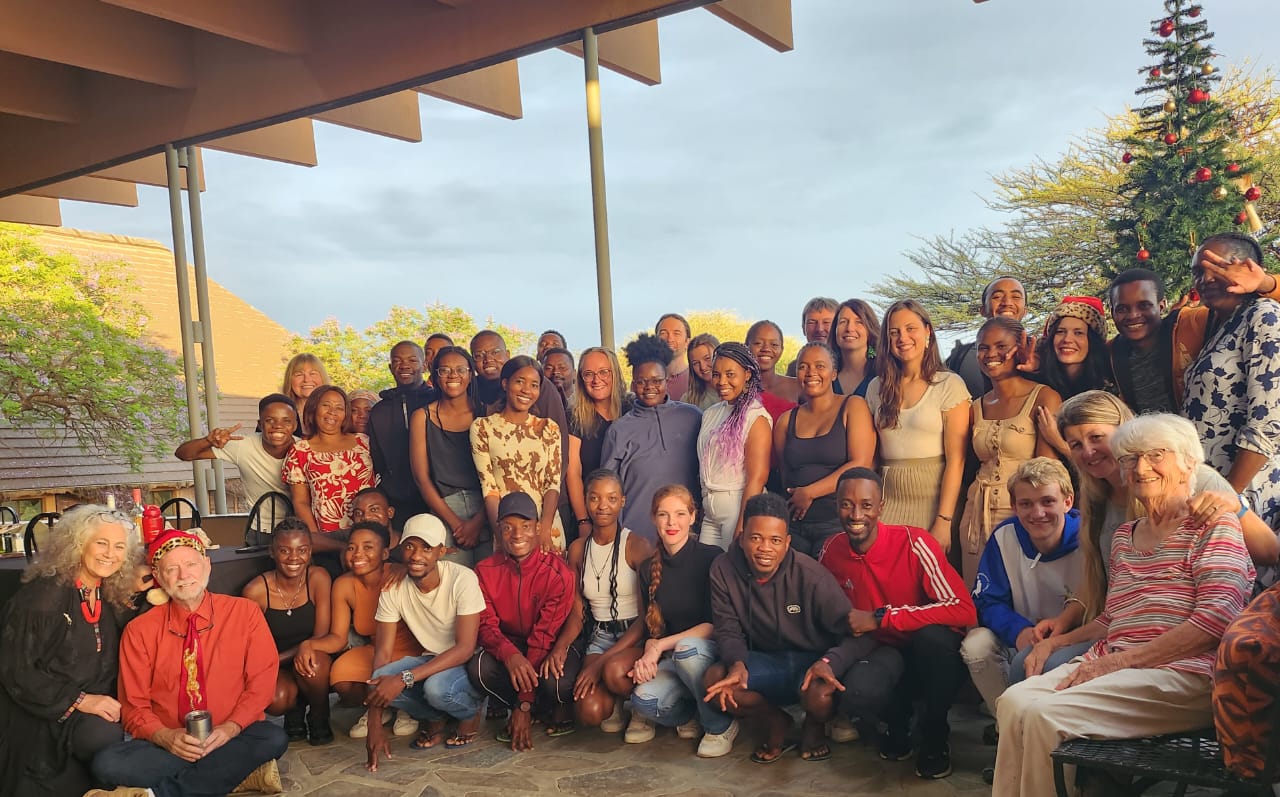
1st Global Cheetah Summit
2024 begins with a splash as CCF will be hosting the 1st Global Cheetah Summit on January 28-31 in Addis Ababa, Ethiopia. We have been working together with the Ethiopian Wildlife Conservation Authority (EWCA) and partners from global conservation including CITES, CMS, IUCN, University of Oxford’s Wild CRU Cheetah Conservation Initiative, the IUCN Cat Specialist Group, IUCN Antelope Specialist Group, IUCN Canid Specialist Group, IUCN Conservation Translocation Specialist Group to bring together a diverse group of stakeholders representing governments, NGOs, conservationists, community members, private businesses, and economists from around the world to discuss the plight of the fastest land animal, and to work together to identify strategies to save the cheetah in the wild.
Cheetahs continue to be threatened by habitat loss and fragmentation, human-wildlife conflict, and increased poaching and illegal trade. Each of these threats will be compounded further by human population growth, loss of biodiversity and climate change. These threats are multi-faceted and interlinked, threatening the cheetah’s survival into the future. As the human population grows, more cheetah habitat is lost to agricultural production, further increasing the fragmentation, reducing wild prey populations, and increasing the chances for cheetahs to come into conflict with people. In addition, many farming and grazing practices are responsible for habitat transformation and degradation, accelerating desertification and negatively impacting wildlife populations. Finally, human-wildlife conflict reduces the cheetah population in the wild, either through direct persecution or via illegal wildlife trade.
Conservation practitioners understand the threats facing the cheetah, but now is the time to implement more of the solutions in the cheetah’s current range and to develop new habitat for this iconic big cat, which lives in low density and requires vast home range territories. Advocates for the global community of cheetah conservation are seeking to identify the swiftest actions necessary for securing a viable cheetah population into the future. Through this summit, participants will identify the required steps needed in the next two to five years to combat the most significant threats facing the cheetah. We will keep you posted on the outcome of the Summit. Several CCF members will be in attendance. If you are interested in joining, please let us know.

Thank you for all your support. We wish you a very Happy New Year and we continue to Save the Cheetah and Change the World.
Laurie, Bruce and all the CCF Teams
"Cheetah Tracks" Newsletter Sign-Up
Stay updated on the activities of Cheetah Conservation Fund in Canada, Namibia and Somaliland. We send semi-annual newsletters and info about special events and initiatives. We will not share your email address with any other organization.
Related Reading
-
October 24, 2025
International Climate Day – October 24 -
September 28, 2025
Inspiring Visit to CCF Namibia -
November 14, 2024
Let’s #SaveTheCheetah in the Wild Together!
